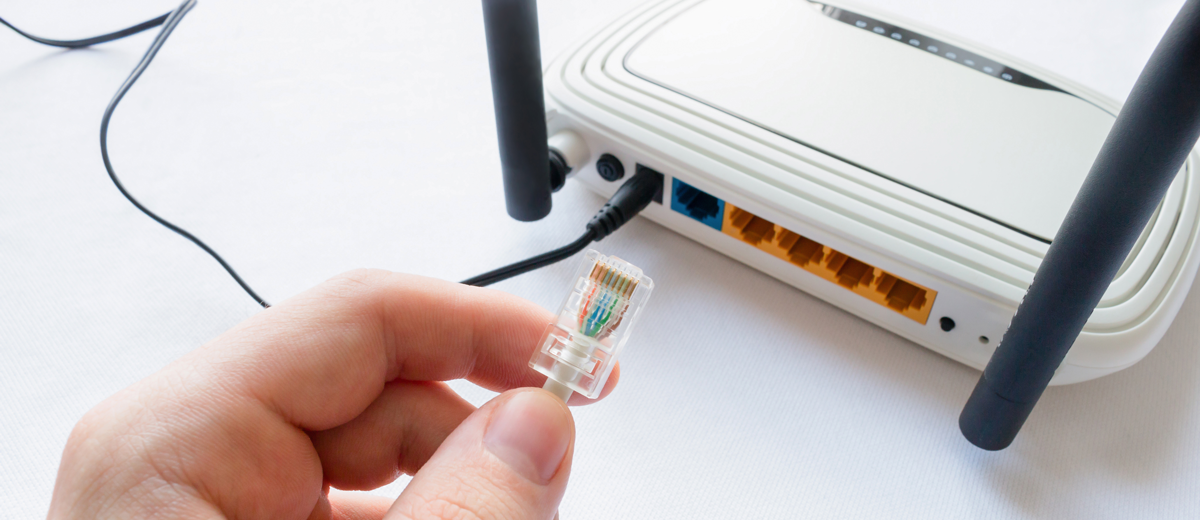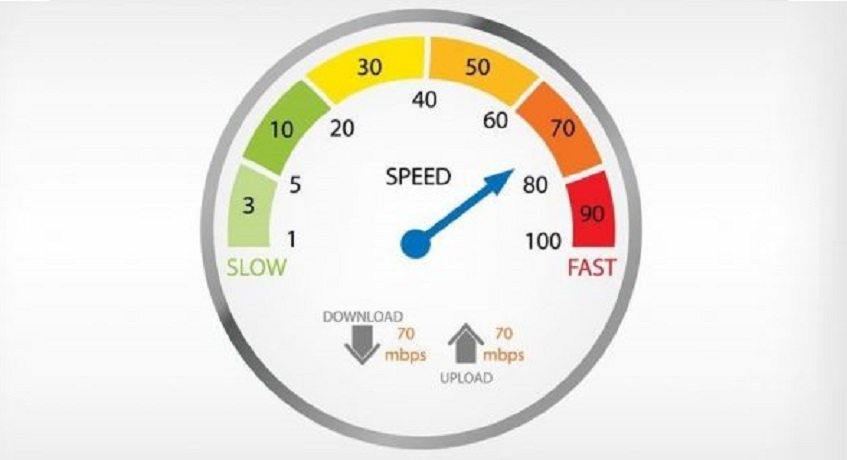Imagine a world where you do not have access to the Internet. Think of struggling through the day without having to scroll through your Facebook or Instagram feed. It’s a rather unbelievable scenario, isn’t it? The average data usage per month home Internet was 268.7 GB in the States in 2018.
While many factors affect data usage in a household, let’s first have a look at how much data do various activities consume.
Table of Contents
How Much Data does Streaming Video Use?
When you stream videos, you do so on different platforms. Therefore, the data used depends on the site or app that you are using to stream videos. Questions like is 100 Mbps fast do not matter then. Because it is the data usage that you should be more concerned about.
Following are some of the stats for a couple of famous video streaming sites:
YouTube
- 562.5 MB of your data per hour if you watch videos at 480p resolution.
- 1.86 GB per hour of data if you watch at 720p resolution.
- Watching videos at 1080p resolution consumes 3.04 GB of data per hour.
- Video streaming in 4K resolution consumes 15.98 GB of data per hour.
Netflix
- If you stream in standard definition, an hour of video streaming uses 1 GB of data.
- Watching videos in high definition raises the data usage to 3 GB per hour.
- Ultra-high-definition of video streaming will use 7 GB of your data per hour.
Amazon Prime Video
- Good streams videos (480p resolution) use 800 MB of data per hour.
- Better streams videos that come in HD quality use 2 GB of data per hour.
- Best streams videos that come in 4K resolution consume 6 GB of data per hour.
How Much Data does Streaming Music Use?
Like video streaming apps, music streaming apps use data as well. Some of them use more than others.
Here are some stats for you:
Apple Music
- Streaming music in high quality consumes 256 kbps of data.
- If you stream for an hour, you consume 115.2 MB of data.
Spotify
- Top streaming quality consumes 320 kbps of data.
- Streaming for an hour means you consume 144 MB of data.
Google Play Music
- Top streaming quality means a data usage of 320 kbps.
- One hour of streaming music eats through 144 MB of data.
Soundcloud
- If you stream in top quality, you will consume 128 kbps of data.
- An hour of streaming consumes 57.6 Mb of data.
Having a look at these values means that you will have to be careful about your uses of the internet.
Activities that Take up the Most Bandwidth
As mentioned before, the data usage varies from one household to the other, depending on several factors. One of the factors that affect data usage is the activities of the original on the Internet. Following are some of the activities that take up the most bandwidth:
Netflix
Netflix is a favorite not among youngsters but adults as well. While you relish watching hours and hours of shows and movies on Netflix, you fail to realize that it is the biggest bandwidth hog. Well, this fact still can’t stop many of us from binge-watching an entire season over the weekend, can it?
YouTube
Another culprit in this category is YouTube. Almost every other person relishes watching videos on YouTube. These include the likes of tutorials, fitness regimes, funny videos, or simply songs. The good part? You get to watch the videos free of cost. The bad part? It consumes a lot of your data. Video streaming data usage on these apps can exceed your monthly limit.
Spotify
Spotify is just another platform that consumes a lot of bandwidth. However, the truth is that one cannot do without it. According to sources, if you are streaming a song on Spotify in the best quality, you are consuming 2.4 MB per minute.
Dropbox
To be honest, this is the least expected name on the list. But the truth is that syncing your Dropbox can consume a large amount of your bandwidth. However, you can always limit the bandwidth being used by changing the settings.
Video Calling
Yes, those hours long of video calls to your BFF cost you your bandwidth. Skype and FaceTime take up a lot of bandwidth every month.
Who knew that tagging friends on Facebook posts and watching an unlimited amount of videos could consume a lot of bandwidth? Sad but true.
Game or Application Updates
The automatic updates for your phones also consume a major chunk of your data or bandwidth.
Unsecured WiFi
The probability that the neighbors have a higher Internet data usage from your WiFi device than you is high. However, this implies in the case your WiFi system is not secured. Because then the people get free access to your WiFi. Hence, consuming your data.
The above-mentioned activities weren’t to scare you but to warn you of the things consuming much of your bandwidth. However, this should not scare you much as there are ways by which you can reduce your data usage at home.
How to Reduce the Average Internet Usage per Month?
You can adopt the following ways to reduce Internet usage at your home:
Turn off Maps
You need to make a conscious effort for this one. Turn off the maps/locator/ GPS in apps on your phone. Because these location services run constantly in the background. Hence, consuming data. To turn the location services off, go to your mobile’s ‘Settings’, click on ‘Location’ and see the apps tracking you. Simply turn those apps’ tracking service off and you are good to go.
Switch Browsers
This may surprise you but switching browsers help to reduce the data usage as well. For example, Google Chrome compresses data on computers and laptops. Which means that it uses less data. However, if you are not comfortable with the idea of switching browsers, consider using a ‘light’ version of the browser you are using.
Download Over Streaming
Consider downloading your music instead of streaming it. Streaming videos hogs the data.
Get Off the WiFi
Yes, if you have unlimited mobile data, do not connect your device to the WiFi at your home. It just ends up consuming more of your home’s WiFi bandwidth.
Check Your Router
There are advanced routers that allow you to check what all is connected to my cox WiFi at any given time. Certain routers also come with an option to allow data usage to devices.
Lower Quality Streaming
To save your monthly data, you will have to bear with watching lower-quality videos on YouTube than you usually do. You can do so by clicking the settings on the video that you are watching and selecting the quality you want to view the video in. The same goes for streaming shows and movies on Netflix.
You do not want your Internet plans exhausting halfway through the month. Therefore, stream carefully.
In case, you believe that you still need to monitor your data usage, a couple of Windows apps can be of help. These apps allow you to monitor your data usage.
Apps that Monitor Data Usage
NetBalancer
This app is a network traffic monitoring and control tool. It allows you to monitor not just LAN but WiFi connections as well.
Net Guard
Unlike NetBalancer, Net Gear is free. This tool offers users powerful bandwidth monitoring. It also allows you to keep a watch on any given system’s network bandwidth.
Bandwidth Monitor
This tool also comes free and allows you to keep a track of your bandwidth usage. However, it is not as powerful as NetBalancer and Net Guard. But it offers features that are sufficient for everyday use.
NetTraffic
The simplest yet one of the most powerful tools to help you monitor bandwidth is NetTraffic. Using this tool, you can track the bandwidth data on multiple connections including LAN and WiFi.
NetworkUsageView
Unlike the tools stated above, NetworkUsageView only focuses on data usage. The tools mentioned above are complete network monitors.
Reading this blog will help you select the best Internet package for yourself as well. Always opt for a company that offers more data cap at a reasonable rate, efficient customer service, and blazing speed Internet. Apart from that, try to alter how you eat up your monthly bandwidth. Make an effort to consume less.




